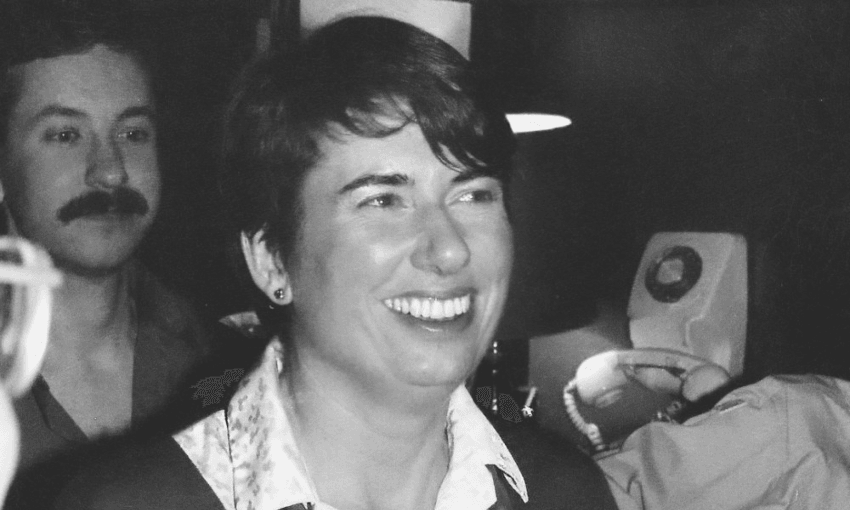In the mid-80s, the Labour MP led the historic bill through parliament. Today, she says, such legislation would struggle to survive online toxicity and targeting.
The campaign for homosexual law reform in New Zealand encountered fierce and sometimes ugly opposition – on talkback radio, in parliament, and at town hall debates. In one memorably vile outburst at a public meeting in 1985, as the legislation was making its way through parliament, MP Norman Jones seethed, “go back into the sewers where you come from,” at a group of gay campaigners. The member for Invercargill continued: “Gaze upon them! You’re looking into Hades. Don’t look too long – you might catch Aids.”
“We all knew it would be pretty awful,” said Fran Wilde, the Labour MP who in March 1985 lodged the member’s bill to remove criminal sanctions for consensual sex between men. Speaking to The Spinoff four decades on for the podcast Juggernaut: The Story of the Fourth Labour Government – the latest episode of which focuses on the reforms – she said: “But it erupted on the streets in a huge way. It was nasty.”
There was one consolation. “Fortunately, there was no social media in those days,” said Wilde. “I seriously doubt that this bill would have got through to the end if we’d had social media as we see it today.”
There was no shortage of misinformation and verbal abuse at the time. In parliamentary debate, MP John Banks said passing the law would open the way to “a bill legalising sexual activity with animals”. His colleague, Graeme Lee, said, “it would allow such things to happen as pedophilia”. If those were the sentiments in the House of Representatives, just imagine how poisonous social media might have been, had it been around, said Wilde.
Not only would personal attacks have been amplified, but algorithms risked reinforcing people’s prejudices. “It would have been awfully hard,” said Wilde. “The algorithm gives you more and more of [what you already think].”
Max Tweedie, a former executive director of Auckland Pride, said he agreed, reluctantly, with Wilde’s assessment. In the 2010s, social media had been a valuable tool in the “advancement of LGBTQIA+ rights in Aotearoa and around the world”, he said. “I experienced this personally when it was critical in the fight to ban conversion practices. Social media proved vital to both petitions and select committee submissions which ensured a demonstration of broad public support that ensured its safe passage into law.” Things had changed, however. “The social media environment, particularly for LGBTQIA+ content, has deteriorated rapidly in the past two years.”
Tweedie pointed to Meta muzzling content on “political and social issues” and the Elon Musk impact on Twitter/X. By removing many “safeguards for protecting LGBTQIA+ people, particularly trans people, from hate speech and hateful conduct”, Twitter had “intentionally allowed the promotion of mis- and disinformation to flourish on the platform – making it an untenable platform for me to use any more after three months of relentless false and hateful speech directed at me after attempting to prevent Posie Parker’s visit to Aotearoa in the High Court.” He said: “These platforms previously have been vital to advancing progress, and are now part of that progress unravelling.”
An absence of regulation of the companies had “created a more polarised world fuelled by mis- and disinformation”, said Tweedie. “That’s led to a regression of LGBTQIA+ rights.” He said: “A world where we enjoyed a shared level of understanding, grounded in facts with a verified information landscape, is rapidly slipping away. It terrifies me, and underscores the need for urgent regulation of social media and tech companies – especially as the rise in artificial intelligence threatens to accelerate the public’s inability to tell right from wrong, with the concept of truth itself hanging in the balance.”
Of course, threats of death and harm were rife long before the internet came along. “It was pretty awful stuff, actually,” recalled Wilde of some of the correspondence and phone calls received by her office. “And it gave me a bit of an insight into what the gay community and the lesbian community had had to put up with forever. I only had it for a couple of years, but this is what they lived with.”

